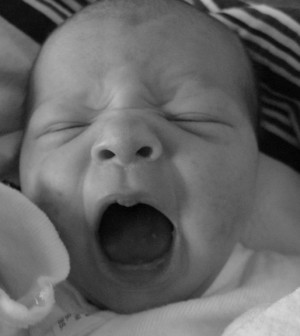- Could Your Grocery Store Meat Be Causing Recurring UTIs?
- Are You Making This Expensive Thermostat Error This Winter?
- Recognizing the Signs of Hypothyroidism
- 10 Strategies to Overcome Insomnia
- Could Artificial Sweeteners Be Aging the Brain Faster?
- Techniques for Soothing Your Nervous System
- Does the Water in Your House Smell Funny? Here’s Why
- Can a Daily Dose of Apple Cider Vinegar Actually Aid Weight Loss?
- 6 Health Beverages That Can Actually Spike Your Blood Sugar
- Treatment Options for Social Anxiety Disorder
Depression, Insomnia, Fatigue Are the Stuff of Nightmares


Depression, insomnia and exhaustion may be major risk factors for frequent nightmares, new research suggests.
“Our study shows a clear connection between well-being and nightmares,” lead author Nils Sandman, a researcher in the Center for Cognitive Neuroscience at the University of Turku in Finland, said in an American Academy of Sleep Medicine news release.
However, the study did not prove that depression, insomnia and fatigue caused nightmares.
The study included nearly 14,000 adults, aged 25 to 74, in Finland who were surveyed in 2007 and 2012. Fifty-three percent were women.
About 45 percent of the participants said they had occasional nightmares in the past 30 days, while just over 50 percent said they had no nightmares. Nearly 4 percent said they had frequent nightmares in the past 30 days, including nearly 5 percent of women and about 3 percent of men, the findings showed.
Frequent nightmares were reported by about 28 percent of people with severe depression and about 17 percent of those with frequent insomnia, the researchers reported.
After further analysis, the study authors concluded that insomnia, exhaustion and the depression symptom of “negative attitude toward self” were the strongest independent risk factors for nightmares.
“This is most evident in the connection between nightmares and depression, but also apparent in many other analyses involving nightmares and questions measuring life satisfaction and health,” Sandman said in the news release.
“It might be possible that nightmares could function as early indicators of onset of depression and therefore have previously untapped diagnostic value,” Sandman added.
The study is published in the April issue of the journal Sleep.
More information
The U.S. National Library of Medicine has more about nightmares.
Source: HealthDay
Copyright © 2026 HealthDay. All rights reserved.










